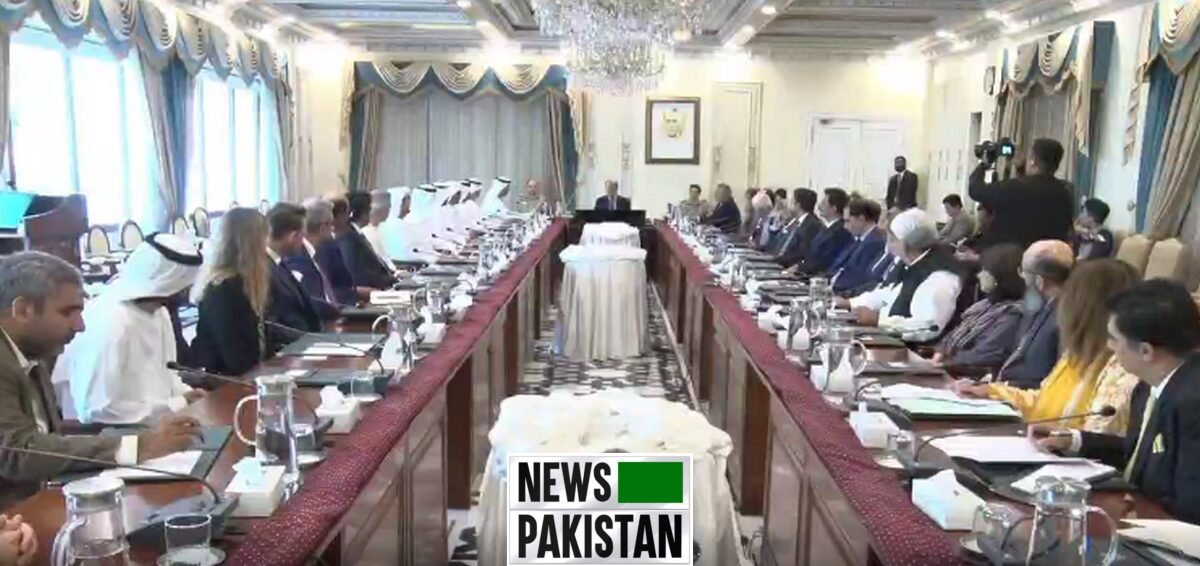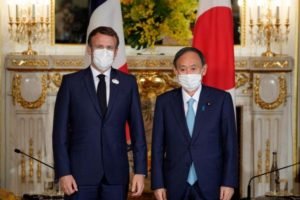WASHINGTON: Global finance officials gathered in Washington on Wednesday were focused on finding a way to alleviate supply chain bottlenecks that are driving prices higher and threatening to derail the economic recovery.
As demand has spiked, suppliers have not been able to keep up: Ships are lined up outside American ports waiting to offload goods, US consumer inflation remained elevated in September, global oil prices have jumped over $80 a barrel, the highest in years, and British families may be forced to do without turkeys for Christmas dinner.
The global supply challenges are a key focus of meetings of the International Monetary Fund, the Group of 20 advanced economies and the smaller gathering of finance ministers from the Group of Seven.
Pandemic restrictions shuttered manufacturing and trade routes while suppliers, who are facing shortages of workers and truck drivers, have not been able to keep up with the sudden surge in demand for goods as economies began to reopen.
The disruptions, which some policymakers fear may be long lasting, have hobbled the recovery momentum, prompting the IMF to cut growth forecasts for major economies like the United States and Germany.
G20 finance ministers and central bankers cited the ongoing risks to the recovery and pledged “to use all available tools for as long as required” to counter the pandemic impact, and avoid “any premature withdrawal of support measures.”
But officials warned that the supply bottlenecks are likely to persist, along with higher prices.
The World Bank estimates 8.5 percent of global container shipping is stalled in or around ports, twice as much as in January.
– Inflation threat –
Italy’s central bank chief Ignazio Visco agreed with the IMF and others who have said the inflation pressures are mostly due to transitory factors like the surge in demand.
But he acknowledged that “these may take months before fading away.”
G20 central bankers are studying the issue to see if there are “more structural factors at work” in the bigger-than-expected inflation spike, and “whether there is some component which starts being transitory but that could become permanent,” Visco told reporters.
Central bankers are walking a fine line between supporting the recovery with easy financial conditions while warding off a permanent increase in inflation.
The G20 communique said central banks “will act as needed” to address price stability “while looking through inflation pressures where they are transitory.”
But World Bank President David Malpass warned that some of the price spikes “will not be transitory.”
“It will take time and cooperation of policymakers across the world to sort them out.”
IMF chief Kristalina Georgieva said the lag in vaccination rates to contain the pandemic in developing nations is contributing to the supply constraints, and “as long as it widens this risk of interruptions in global supply chains is going to be higher.”
– ‘Never again’ –
In the world’s largest economy, US President Joe Biden on Wednesday announced an initiative to ease the backlog by pushing for 24-hour service at ports and suppliers.
He won the commitments to work extended hours from the leaders of the giant West Coast port of Los Angeles and the International Longshore and Warehouse Union, as well as from companies including Walmart, FedEx and UPS.
But Biden said policies must be crafted to reduce reliance on single sources and boost domestic production to avoid such supply shocks.
“Never again should our country and our economy be unable to make critical products we need because we don’t have access to materials we need,” Biden said. “Never again shall we have to rely too heavily on one company or one country.”
That theme was echoed by French Finance Minister Bruno Le Maire, who told reporters on the sidelines of the meetings: “The answer lies in one word: independence.”
Newspakistan.tv | YouTube Channel











